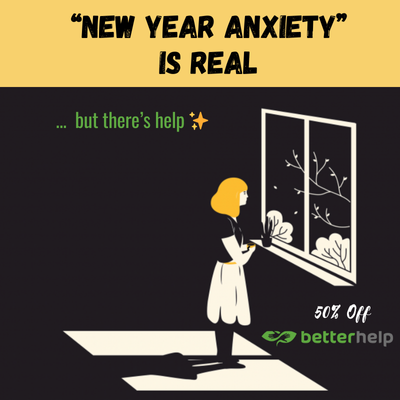I can tend to be annoyingly contemplative at times…I’ve had friends (and disgruntled boyfriends) ask, at times, “Good lord, can you please not be deep for like 5 seconds?” I’m working on it. Normalcy is kinda cool, too.
That said, I’ve spent a lot of time thinking about how we can all make the world a better place, WTF is wrong with humanity, and If I Were President, who I’d fire (and hire) first and how I’d go about implementing systemic change that gets at the core deeper issues of WTF is wrong with humanity. I’m also an avid dharma practitioner and am seeking to integrate ancient dharmic wisdom with modern business insanity.
So naturally, when I read, “Inquiries into the Nature of Slow Money: Investing as if Food, Farms, and Fertility Mattered”, I thought to myself, “This is the start of A Movement That Deserves Capital Letters.”
You see, when I probe deeply into the question of WTF is wrong with humanity—when I trace the issues of environmental degradation, economic disparity, world hunger, and lack of happiness in my fellow human beans, back to their source, it occurs to me that a key player in this matrix of malaise is our effed up economic system (an Even Key-er Player is the fact that most of us run around completely distracted and divorced from any real connection to our True Nature, our inherent essence of unimpeded loving awareness. But that’s another blog, for another time).
Money is intended to be a symbolic representation of an exchange of resources. At least, that’s how it started out. You have sheep? Cool, I need sheep. I have some tomatoes. Trade sheep for tomatoes? Sweet. (Yeah, probably a lot of tomatoes. Just go with me here.) Eventually we developed a currency infrastructure as an agreed-upon system of value-measurement, to mediate and facilitate these exchanges more efficiently.
And then (insert ominous music here)….as so often happens, our divorce from our True Nature and our Me-First-And-The-Gimme-Gimmes attitude started to manipulate the system for personal gain—that is, the personal gain of those who had the will and circumstance to manipulate it. (“Invisible” Hand of the Market, anyone?) And money got increasingly less connected to the tangible goods and services it was originally intended to represent, and more and more connected to a highly influenceable belief system composed of incredibly complex financial instruments—CDOs, derivatives, structured debt, credit default swaps….lions, tigers, bears, oh my!
WTF does this stuff even mean? I am reminded of the scenes in Capitalism: A Love Story where Michael Moore asks Wall Street economists to explain derivatives to him…and no one is able to.
Kinda also reminds me of how so much of the food we eat has un-pronounceable, un-understandable, un-food ingredients in it. (Does it freak anyone else out that propylene glycol is used both in foods and as antifreeze? Come on, humans! Can’t we do better than this?!?)
And our soils. Oh, our soils! Don’t get me started on our soils. Wait, I’m started. Nevermind. [steps onto soapbox]. We treat our soils as little more than a medium for extraction of the most productivity possible. Laudable from a humanitarian standpoint (OK, I’m being very generous here), stupid from an environmental standpoint….looking at a Bigger Picture, it’s stupid from a humanitarian standpoint, too—because we depend on the soils, duh! You can’t just take take take from someone and always expect them to give back. Haven’t you people ever been in a relationship before? The soil is very very forgiving…but eventually, after years of raping, it just kinda withers and stops giving so much. And so we pump it full of chemicals to keep it going.
I rant. Here, have a depressing statistic to wash it down with:
It takes ~1000 years to build 1-2” of topsoil.
It takes 30-40 years of modern agriculture to destroy it.
Here, now be humbled:
“Despite their artistic pretensions, sophistication, and many accomplishments, humans owe their existence to a six-inch layer of topsoil and the fact that it rains.”
–Anonymous
2 + 2 …. Think about it. “A nation that destroys its soil, destroys itself.” (FDR)
Slow Money is about bringing these two conversations together. It’s about bringing the conversation about money back to one based on Real Value. What makes a healthy economy? Do we ever even really consider the actual health of our economic ecosystem? What is the economy a representation of? How can we consciously direct our economic impulses and value flows to be supportive of things that actually bring real, tangible, quality of life improvements to our own lives, families, and communities?
Slow Money focuses on healthy local food systems as the cornerstone of healthy local economies. It focuses on putting your money where your mouth eats. Bringing money back down to earth. And other cute catch phrases that actually make a lot of sense, from a natural wisdom perspective.
Slow Money is about slowing down a little. We are too freaking fast! Yes, I am a huge fan of efficiency and am notorious for taking on too much and going to fast and talking too fast and driving too fast and meditating too fast (trust me, I know that’s ridiculous….). And you know what? My nervous system hates me when I’m like that. I am happiest when I allow myself the time to luxuriate in long meals with wonderful people. When I take time in the morning to savor my cup of tea and consider what it would feel like to bless all beings with every thought and action (why not at least try, right?). When I, well, you know….stop and smell the locally-grown organic roses.
If we want to live high-quality, healthy, balanced lives, our money has to follow us—it has to be an expression, & extension, of our inner state. We have to get beyond our addiction to fast money, fast carbon, fast food. We need a Green Banking Revolution. Balanced living means balanced portfolios. Consider your portfolio an extension of yourself—because it is. What do you invest your money in? And, we are all investors—whether we are investing $25 or $25M, we put money into something. Look where your money goes. Is it in line with how you want to be, and what you want to support, in the world?
Naturally, Slow Money is kind of unattractive to people who want Fast Money. I understand. I want fast money, too (working on that whole “greed and speed” thing…). But if 1 million of us started to invest even 1% of our money (yes, even if that just means 5 bucks) into local and sustainable food and energy systems, what an impact that would have!
Consider it…what if you were to consciously focus on getting at least 1% of your food from local sources. What if you were to consciously put 1% of your money into local companies–whether it was for your energy, food, clothing, or holiday gifts. Could you do it? Sure you could! Join me. Take the Slow Money Challenge and see how good it feels to know that you are supporting people that you know, with faces and families and houses near yours—not faceless corporations whose primary concern is optimizing their bottom line for shareholders addicted to fast money.
To quote my friend, brilliant visionary, and Slow Money author & founder Woody Tasch, “It’s a sobering commentary on modern circumstance that something so commonsensical would be called “One of the Top 5 Trends in Finance for 2011” by Entrepreneur.com and a “revolution” by AcresUSA.”
And lastly, but certainly not leastly—and if you’ve gotten this far, I give you an internet high five—if you want to be a part of advancing this important conversation, I invite you to join the Slow Money National Gathering, which encourages participation over spectation. Yes, come to learn—but also come to help move this movement forward….faster.









Read 2 comments and reply